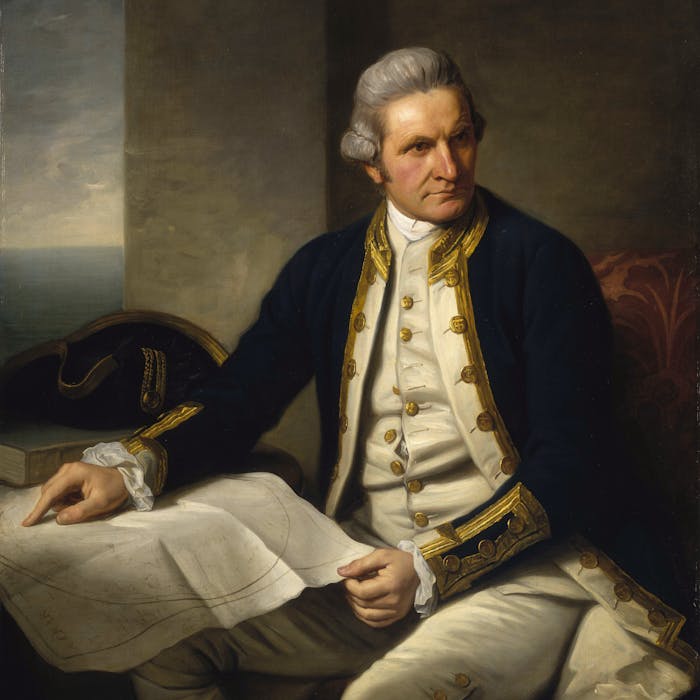
Captain Cook - one of Britain's greatest explorers
Captain James Cook was a British explorer, navigator, cartographer, and captain in the British Royal Navy, famous for his three voyages between 1768 and 1779 across the uncharted Pacific, in which he is credited with the 'discovery' of both Australia and New Zealand.
Cook was from a humble background and was born in 1728 in a village in Yorkshire. He moved to Whitby as a young adult and, after trying shop work, became an apprentice in the merchant navy, rising quickly through the ranks. At 27, he enlisted with the Royal Navy.
Cook's abilities caught the attention of the Admiralty and led to his commission in 1766 as commander of HMS Endeavour for the first of three Pacific voyages. It was usual to have a scientist or artist on board to record any discoveries and botanist Joseph Banks joined this first voyage. Two further Pacific voyages of discovery followed for Cook.
Lieutenant James Cook initiated Britain's colonial interest in Australia, first landing at Kurnell, on the southern banks of Botany Bay, in what is now Silver Beach, on Sunday 29 April 1770, when navigating his way up the east coast of Australia.
On his voyages, Cook sailed thousands of miles across largely uncharted areas of the globe. He mapped lands from New Zealand to Hawaii in the Pacific Ocean in greater detail and on a scale not previously charted by Western explorers. He surveyed and named features, and recorded islands and coastlines on European maps for the first time. He displayed a combination of seamanship, superior surveying and cartographic skills, physical courage, and an ability to lead men in adverse conditions. He was known for his efforts to keep his crew healthy, with high standards of cleanliness, exercise and fresh fruit to combat scurvy.
Cook was attacked and killed in 1779 during his third exploratory voyage in the Pacific during a dispute with the ruling chief of the island of Hawaii. He left a legacy of scientific and geographical knowledge that influenced his successors well into the 20th century, and numerous memorials worldwide have been dedicated to him.
Further reading
Links to external websites are not maintained by Bite Sized Britain. They are provided to give users access to additional information. Bite Sized Britain is not responsible for the content of these external websites.
